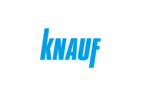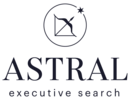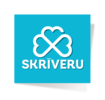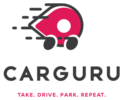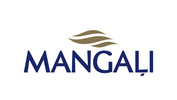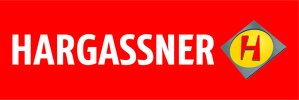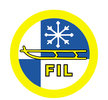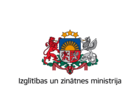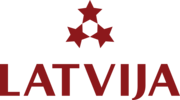
Kristaps Maurins joins the National team as a manager
Kristaps Maurins
Date of birth / Place: 05.05.91, Cēsis
Height: 192 cm
Education: 1. level professional higher education program (certificate)– Latvian Academy of Sports Education, Professional Bachelor higher education program "Sport Science" at Latvian Academy of Sports Education – 4th year.
Profession: Latvian National Luge team manager
Although Kristaps was born in Cesis, he grew up in Sigulda, because at the time Sigulda Hospital was under maintenance, and considers himself 100% Sigulda native. He studied at Sigulda Secondary School No. 3 until grade 6 and grades 7 to 8 at Sigulda State Gymnasium. He entered Murjanu Sports Gymnasium in the 9th grade and graduated in 2010. Kristaps doesn’t think that he comes from an athletic family, but as time went by everything changed and now his family can be considered athletic. He was the first to start doing sports. His sister followed his footsteps, and also wanted to study at Murjanu Sports Gymnasium and entered it in 10th grade, in the volleyball program, but after less than 2 years, she realized that volleyball would not be her long-term passion. But after returning to Sigulda State Gymnasium, she continued to do sports for how pleasure - long distance running. Sister, with her enthusiasm for running, brought along Kristaps' mother, who had never been involved in sports before. And after less than 2 years, both shoulder-to-shoulder runners were already running in half-marathon races all over Latvia. Both together they participated in 2 mountain marathons outside Latvia. Dad is not involved in sports himself, but is a big sports fan, he keeps track of all sports events, but, of course, luge sport has become his favorite. Since Kristaps does luge, he has never missed a competition in person that was hosted in Sigulda.
- When and how did you end up doing luge?
I began luge in 2001 when I was in 4th grade. At the time when all of the neighborhood children were running around the backyard, played hide-and-seek, soccer, etc., one of the childhood friends was already engaged in luge sports. Once I went to his training at the track and for me everything just seemed really cool. And then, after a couple of months, in summer, I applied at the Children's and Youth Luge Sports School. Until then I was not engaged in sports at all, I couldn’t do pull-ups at the tryouts, I could barely survive 30 seconds of doing abs, not even to mention the amount of them, and I couldn’t even run a lap in the stadium without stopping, but despite that, I was admitted to a group of beginners with coach Eva Hofmane. So I trained for a couple of years in the Sigulda Children's and Youth Luge Sports School, until I was addressed by Aivars Kalnins, the Junior National team's head coach, who wanted to see me at Murjanu Sports Gymnasium where I could do this sport at a very different level. I got admitted to MSG and also included in the Junior team, and at that moment it became clear to me that this is what I want to do with my life after the graduation of Murjani.
- What were your biggest successes during your career?
The highest achievements in Junior level I could point out - 3rd place in Junior World Championship team competition and 3rd place in the Junior World Cup.
At the General class level, I wasn’t able to show super high results, but I would like to highlight one Top 10 finish in one of the World Cup events, in couple World Cup stages I managed to break into the Top 15, 13th place in the European Championship, as well as participation in the Sochi Olympic Games.
- Looking back at your career, is there anything you would do different?
I don’t think I would do anything different. I always went to training and competition to put my best out what I had and with the right attitude, but I often encountered some kind of glitches and made my own mistakes which prevented me from achieving high results. Now, looking back, I think that a big halt to my progress was after a heavy fall in Winterberg training, which resulted in 5 screws and a plate in my heel. After that, it was very difficult to be psychologically fit, to overcome the fear of going in the track. After a while, it seemed like I had finally overcome it all, but then again came a couple of heavy crashes and it threw me back where I was after the broken heel. Psychologically it was very difficult, and if there is no confidence in yourself at the track, some internal fears, then there is nothing to do in the track and it's naive to expect high results.
- How did you decide that now is the time to retire?
Before the Olympic season I had already set a goal to myself - the Olympics, and then after the games I will see and decide what to do next. In case of a very good season, I would have definitely remained in the sport as an active athlete. Unfortunately, it wasn’t possible to qualify for the Winter Olympics in Korea, since I didn’t show them the best performance, and the other men in our team this season were much better - internal competition was big. At the moment when it was clear that these games would go along the nose, I realized that it would be enough for me to do luge. I didn’t feel any more excitement, joy and motivation to continue, because the results were not what I wanted, and didn’t see the guarantee that the results could improve if I continued to do the sport. This wasn’t one day's decision to end a career, but it slowly came all season long.
- What is your status and what are your responsibilities in the team now? And how did your now former, teammates react? Did you consider other options?
At the moment I am a National and Junior Team Manager plus I’m assisting Mihail Arhipov in strength & conditioning training. There are many and various managerial responsibilities - the organization of camps in Latvia, planning trips, hotels, catering, transport, etc. In the winter season, of course, I will also join the track training. I was just an athlete, so I know what the athletes would like and what they expect from organizational aspect, so that they don’t have to think about anything related to that and can focus on workouts and training, so I try to provide them everything. I have good relationships with all of the athletes in the team, so it seems to me that they accept me in my new position well. There were really no other options to think about, because in the second half of the season, when it was clear that I wouldn’t be able to qualify for Olympic games, an offer came from LKSF to remain in luge sport. For that, I am very thankful to LKSF for giving me this opportunity! Luge sport is what I really like, and I'm happy to be part of it even after retiring as an active athlete, and I will be able to help and be close to our athletes to achieve high results in the upcoming seasons.
- What is your and Miha’s vision for the team? What and how will you work on to prepare the team for upcoming season and long- term for Bejing Olympic Games? What is your and what is Mihas philosophy, do you both agree on everything?
The main vision for the next Olympic cycle is definitely to improve physical fitness. I fully agree with Miha’s philosophy that luge athletes should be versatile developed and physically strong, developing all physical characteristics. If physically our athletes will feel better and stronger than they have been before, then it will be easier to slide in the track, it will be easier to focus on the race. Now, through tough training, not only physical properties develop, but it also builds mental toughness, and it is necessary to overcome ourselves to achieve highest results in season. And when we reach Beijing Olympic Games, we want that all of the athletes, coaches and staff in the team can say that we have done our utmost to prepare for the most important race in four year term.
Last year, a lot of experiments were done on technique, a lot of work and resources were put in it, and now there's definitely more clarity what is right for us, and what not, in what direction we still need to work, what details need to be polished, to achieve high results.
- Now that you have a new status in the team, you probably look different at things. What do you see in the team and what would you like to change?
At the start of this new Olympic cycle, we have already changed this and that, from what we did in the previous cycle, so I believe that the direction we are starting to work on will bring us success in the coming seasons. What I see in the first camp is really exciting for me - we have begun working hard on strength and conditioning. The training program is very hard, but everyone is going ‘full out’. Team has a good chemistry going, with a healthy humor. I would like for this atmosphere to continue throughout the season. On one hand, it is individual sport, but it's important for the team to be united, it's important to be aware that there are team members who are nearby, and at difficult times are side by side and do not give up advice or help.
- Luge sport in Latvia and around the world – what similarities and what differences you see? Not in only in technical matters, but also in preparation process (S&C, training camps, etc.), equipment and overall securement, world cup organization, etc.
Difficult to say and compare regarding physical fitness training, because no one, of course, shares their training plans. But according to the information that can be seen on social networks, Russians and Americans are working hard all summer long, as well as Austrians and Italians. The Germans are a bit limited on social networks with pictures or videos from their workouts.
In terms of technique, I wouldn’t say that we are far behind the leading countries, but so far, they have been a half-step in front of us and in a sport, where everything is decimated in millenaries of a second, that half of a step can cost a lot. But we don’t sit around, we are looking for the best options for making our sleds as fast as possible so that we can fight along with absolutely all the luge sport leading powers.
If we compare the organization of the World Cup events, in my opinion, the World Cup in Sigulda has always been one of the best organized events in World Cup series. For spectators, such entertainment programs, such additional extras for athletes, which are offered in Sigulda, can’t be seen at other tracks.
- Provisionally, what is your decade plan? Do you want to remain in luge sport or eventually look for other challenges in life?
It's hard to judge what my decade's plan is, at this time, but it's definitely related to sport. I have a specific plan for the next Olympic cycle - I want to be with the team and, on my part, do everything possible to supply athletes with everything, so that we can prepare for Olympic Games as never before. This first year, after retiring as an active athlete, will be a great challenge for me- a new job, new responsibilities, but I am fully motivated to do everything as good as I can.
- Unknown fact about you?
Those who really know me well know a lot about me. But for those who do not know, there are all the opportunities to get to know me and to know the facts that have not been known so far :)
- Biggest adventure / experience in your career?
As the most adventurous and most positive emotions in my career, I can mention the entering of stadium at the Sochi Olympic Games opening ceremony next to all the best Latvian winter sports athletes.
 2018.05.23.
2018.05.23.
 11707
11707
» IZCILS LATVIJAS JUNIORU SNIEGUMS 3. FIL JUNIORU PASAULES KAUSA POSMĀ WINTERBERGĀ!
» VĒSTURISKS STARTS OBERHOFĀ – ELĪNA IEVA BOTA LABO SIEVIEŠU STARTA REKORDU!
» OBERHOFA AIZ MUGURAS – SPĒCĪGS PASAULES KAUSA UN EIROPAS ČEMPIONĀTA POSMS LATVIJAS KAMANIŅU SPORTAM!
» “CIDO KIDS” KAUSS KAMANIŅU SPORTĀ SIGULDĀ – JAUNĀS PAAUDZES SPĒKS, MEISTARĪBA UN NĀKOTNES SOLĪJUMS
















